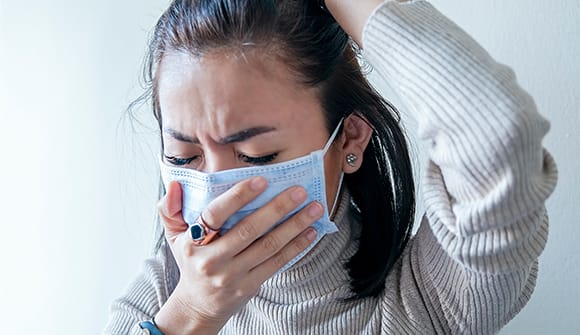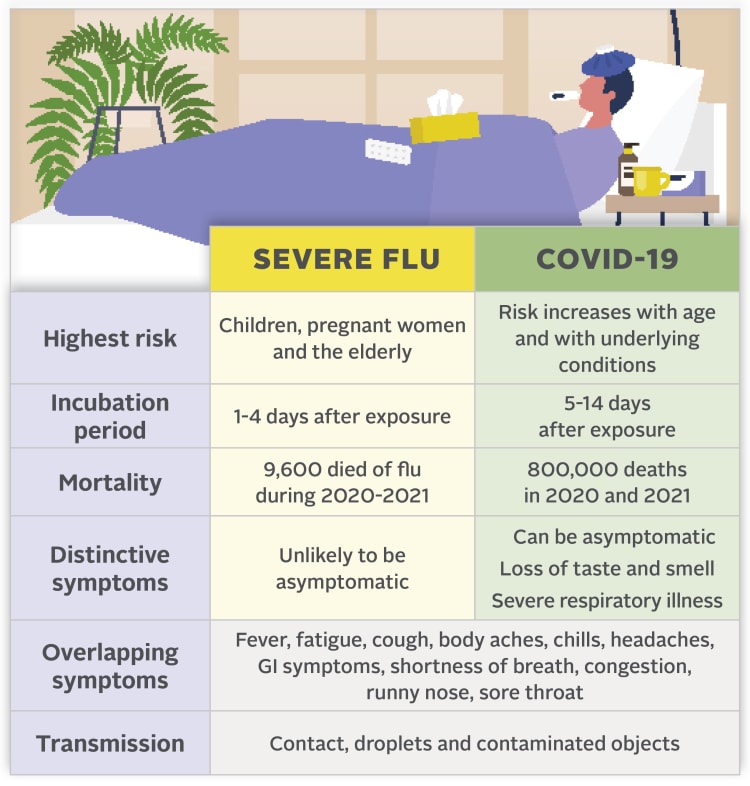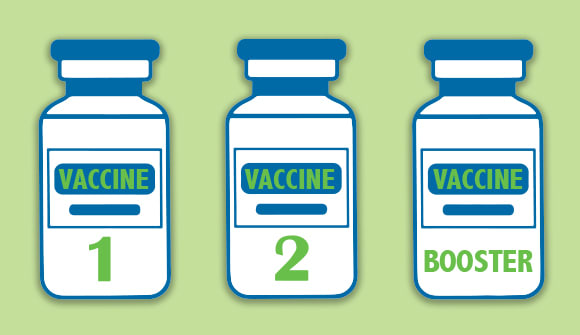Flu or COVID-19?
How to tell which virus you’re fighting.
Article Author: Johnny Woodhouse
Article Date:

If you find yourself curled up under the covers with a cough, fever and body aches, your mind will likely go to a single question: Do I have the flu, or could it be COVID-19?
The symptoms can be similar so what's the difference?
Know your viruses
For starters, COVID-19 is a disease caused by a new strain of coronavirus known as Severe Acute Respiratory Syndrome Coronavirus 2 (SARS-CoV-2).
According to the National Institutes of Health, coronaviruses usually cause mild-to-moderate upper respiratory tract illnesses, similar to the common cold. The new coronavirus strain that leads to COVID-19, however, has been linked to serious illness and even death.
As for the flu, there are four types of influenza viruses, but only two (A and B) are responsible for seasonal flu epidemics each year, according to the Centers for Diseases Control and Prevention (CDC). The flu is responsible for tens of thousands of hospitalizations and deaths in the United States each year.
Identifying your illness
How can you tell if you have one or the other? If you have a fever, cough or other flu-like symptoms, getting tested for COVID-19 is one way to find out. If you are experiencing trouble breathing, seek emergency medical attention immediately.
“I’ve had a few patients come to the emergency room who thought they got the flu after they had received a flu shot, and they ultimately tested positive for COVID-19,” said Kate Barrier, MD, a board-certified emergency medicine physician with Emergency Resources Group and medical director of Baptist/Wolfson Children’s Emergency Center at Oakleaf. “It’s very important to understand that someone can have COVID-19 prior to being symptomatic. Getting a flu shot won’t prevent you from getting COVID-19, but it will help prevent you from getting both viruses at the same time.”
Dr. Barrier explained the differences and similarities in the two viruses:

Get vaccinated
Flu vaccines provide protection from several influenza virus strains that are expected to be the most common in any given year. Getting vaccinated will help reduce your risk of contracting the flu and also reduce the severity of the flu and the potential for serious complications if you do get sick.
COVID-19 vaccines have shown to be effective in preventing COVID-19 and severe illness. However, it typically takes a few weeks for the body to build immunity after vaccination, meaning it’s possible a person could be infected with the virus just before or just after receiving a vaccine. For this reason, it's important to continue infection prevention protocols like wearing masks and social distancing.
These measures, in combination with frequent handwashing and covering coughs and sneezes, will not only help prevent the spread of COVID-19, but also the spread of other viruses, including the flu.
To find a COVID-19 testing site near you, visit baptistjax.com/covid19. For more information about the COVID-19 vaccine, visit baptistjax.com/covid19vaccine.



